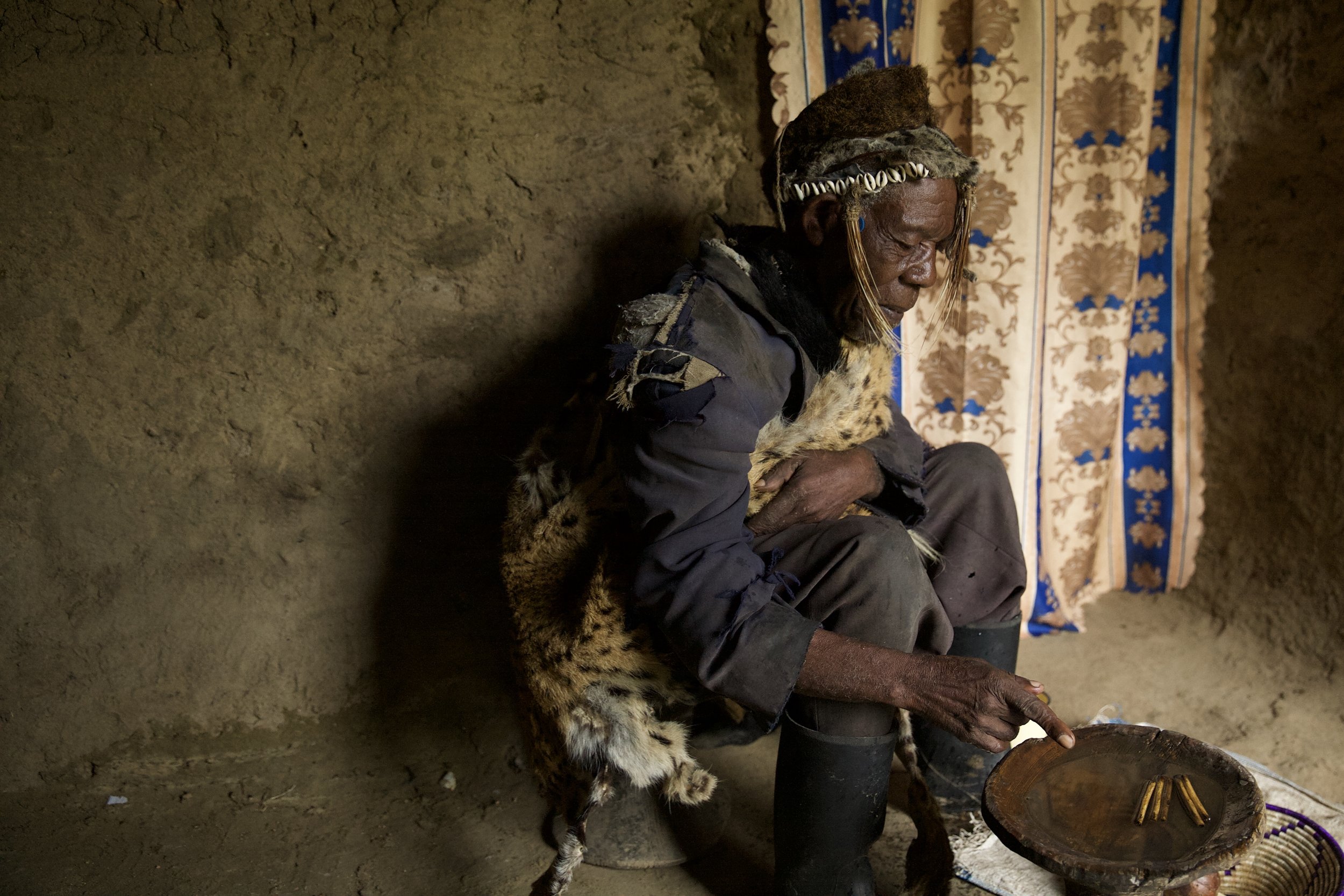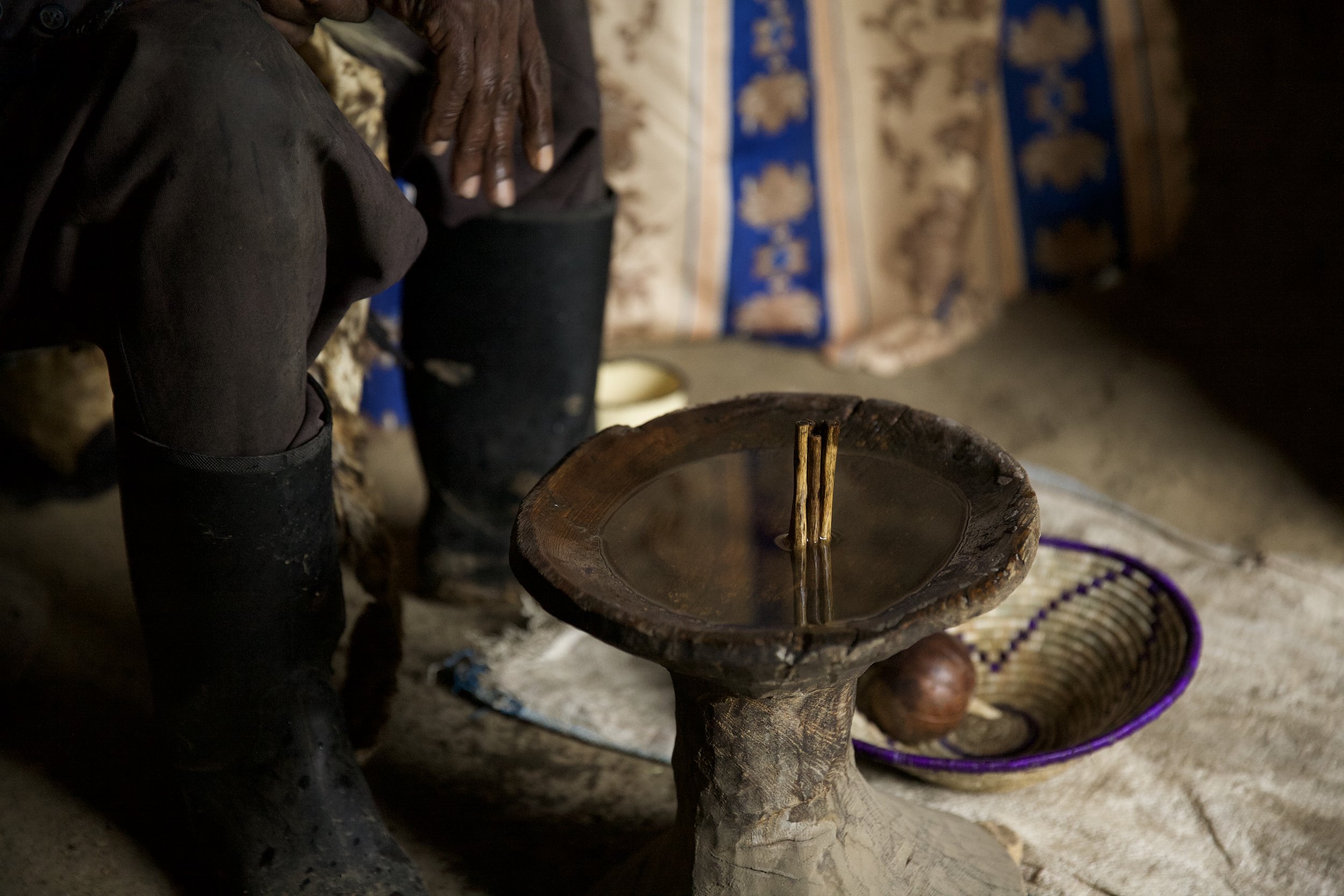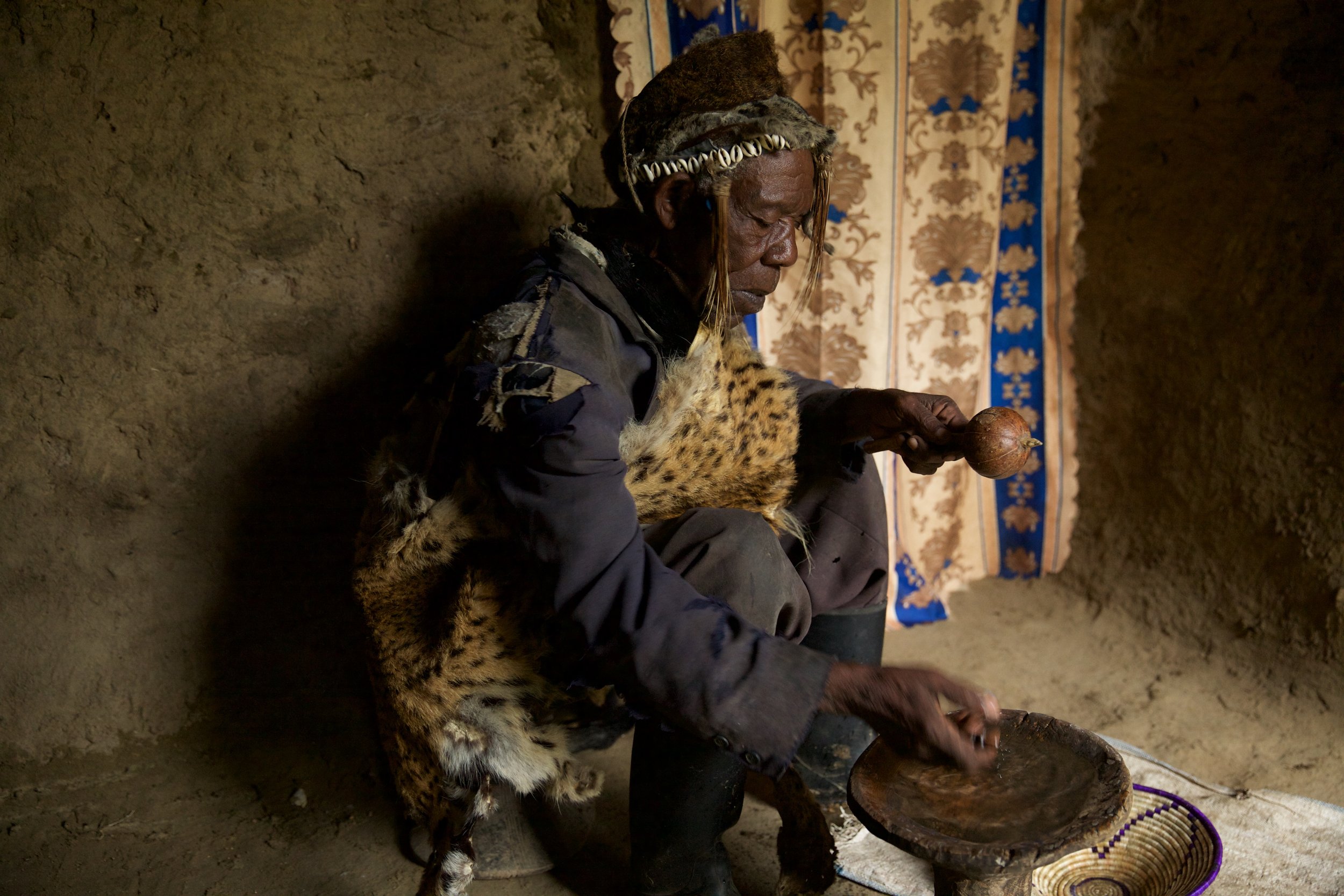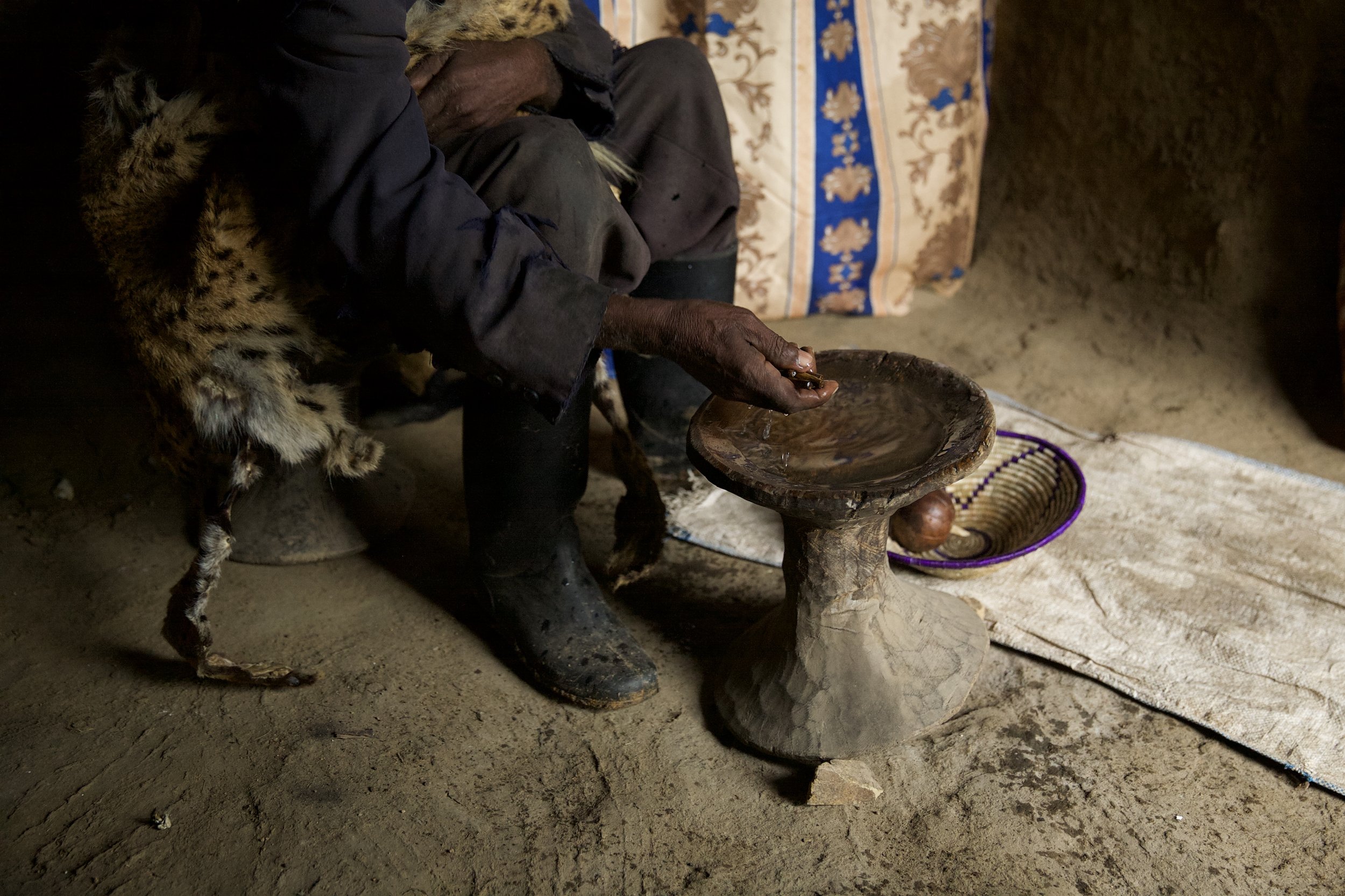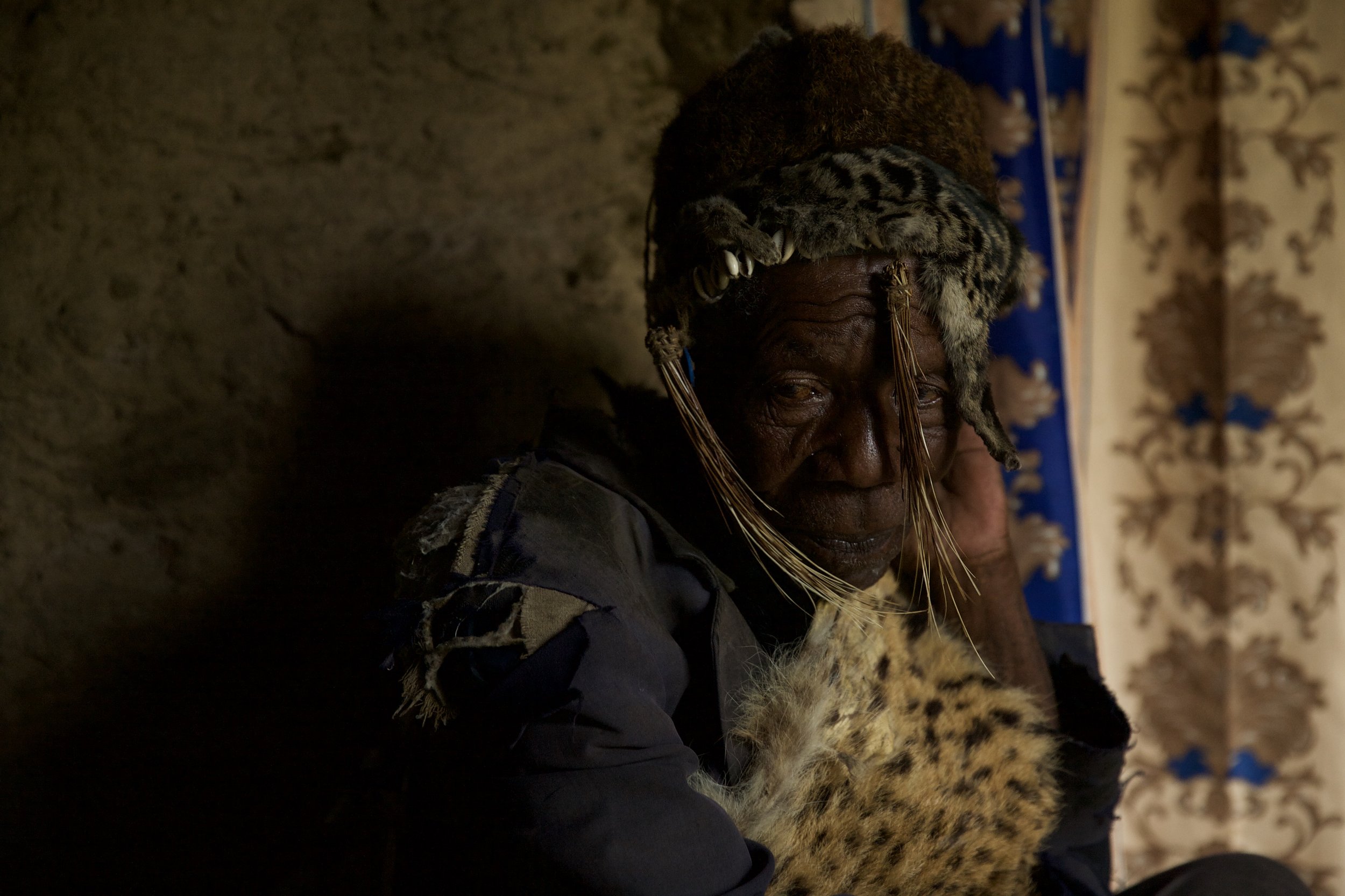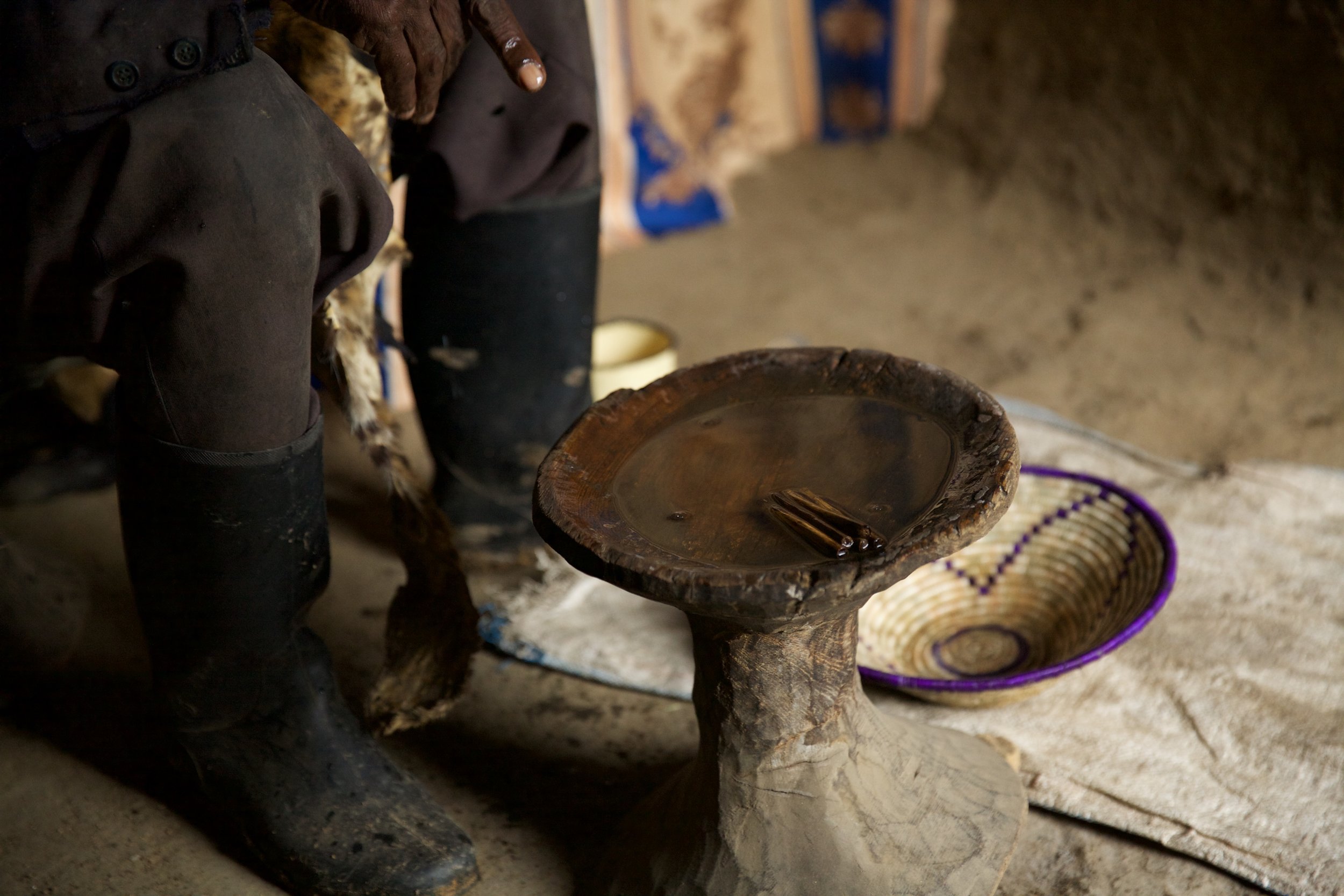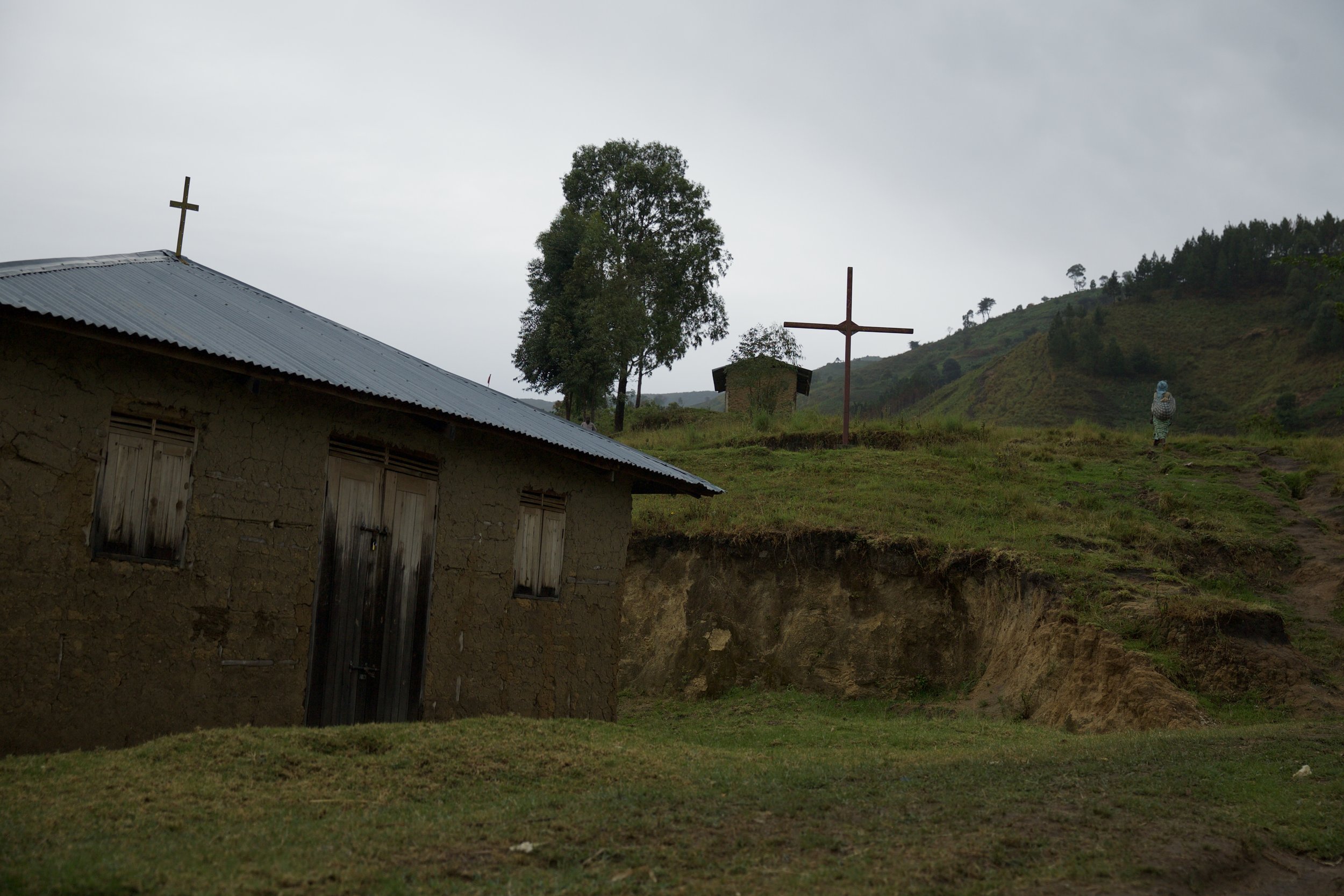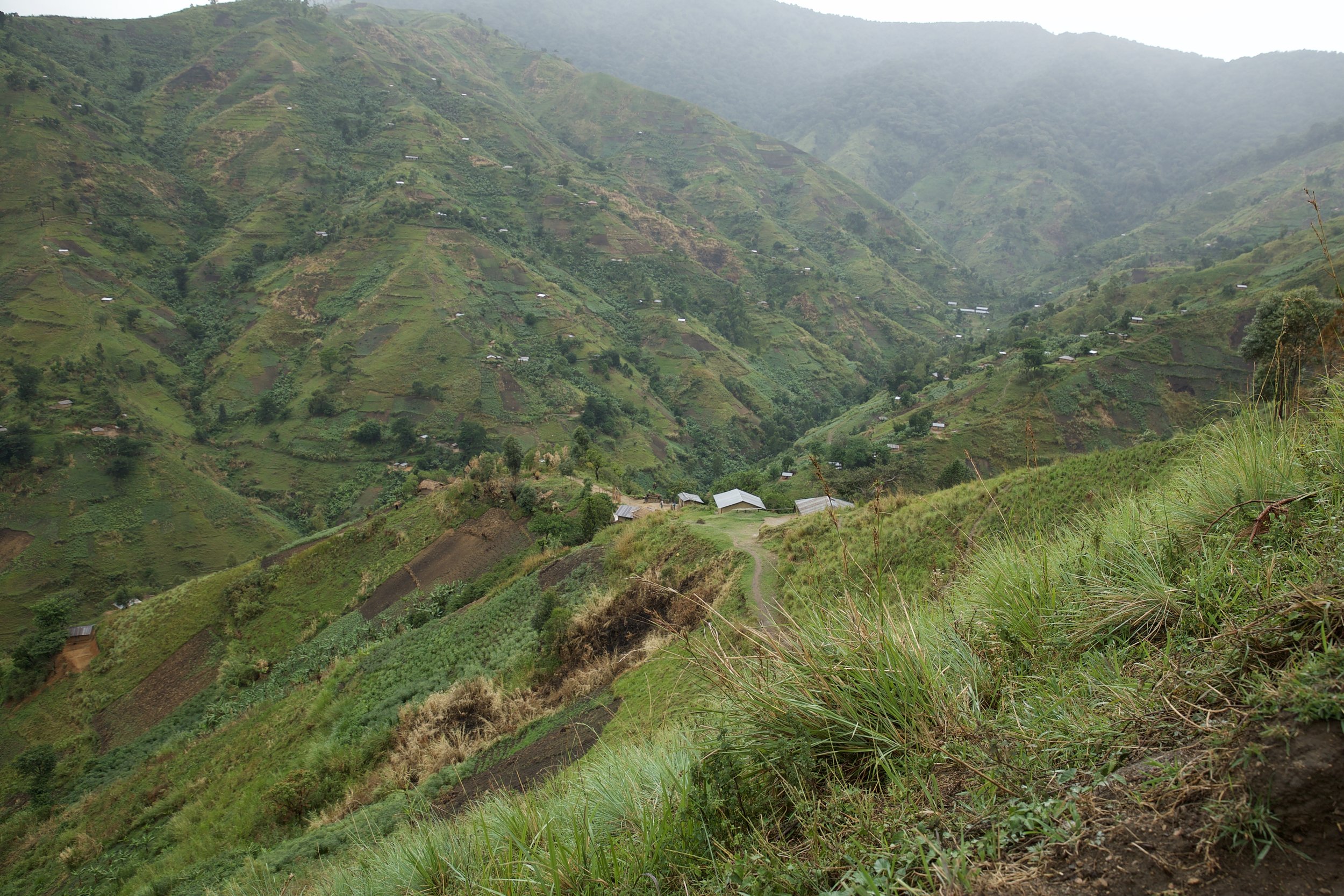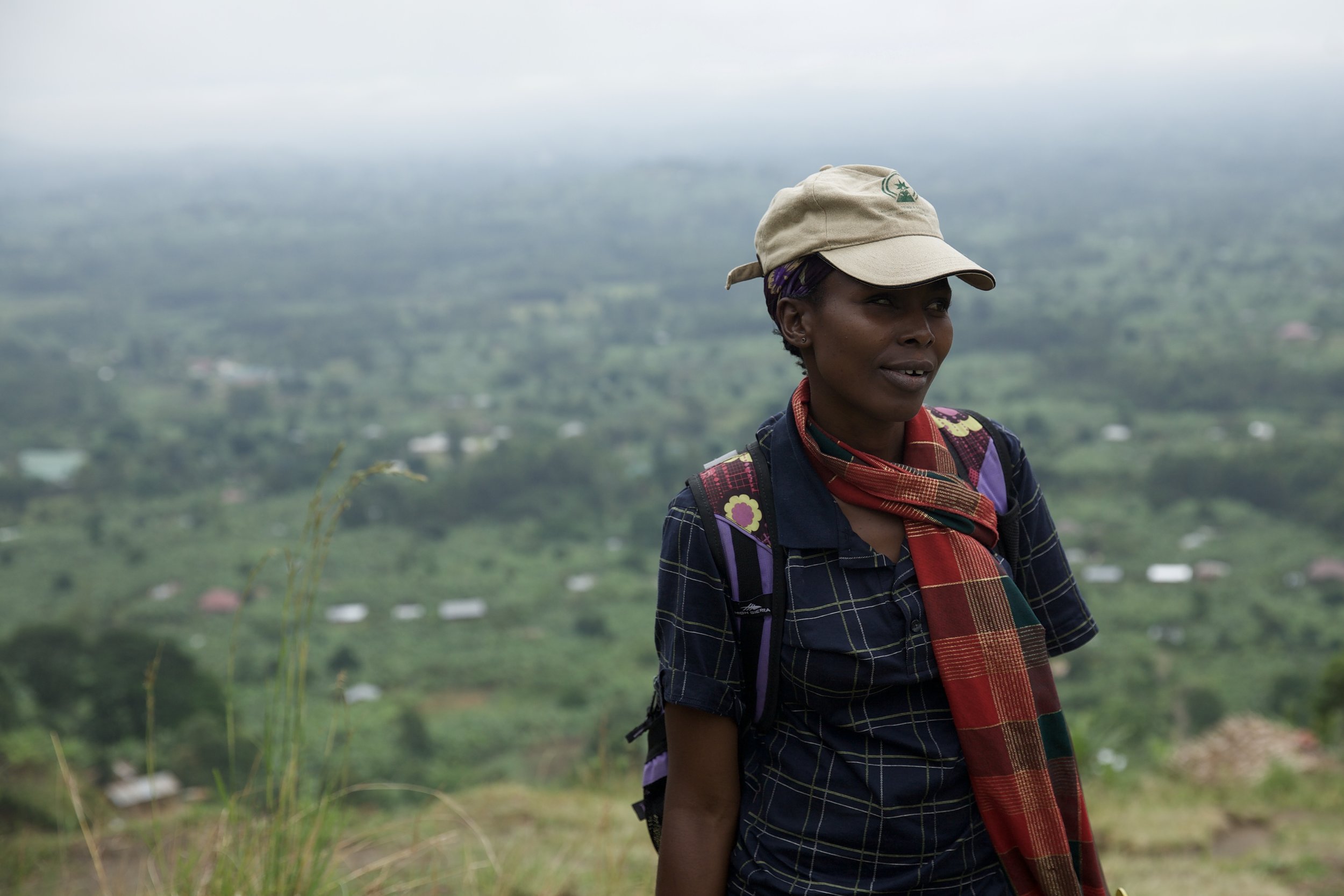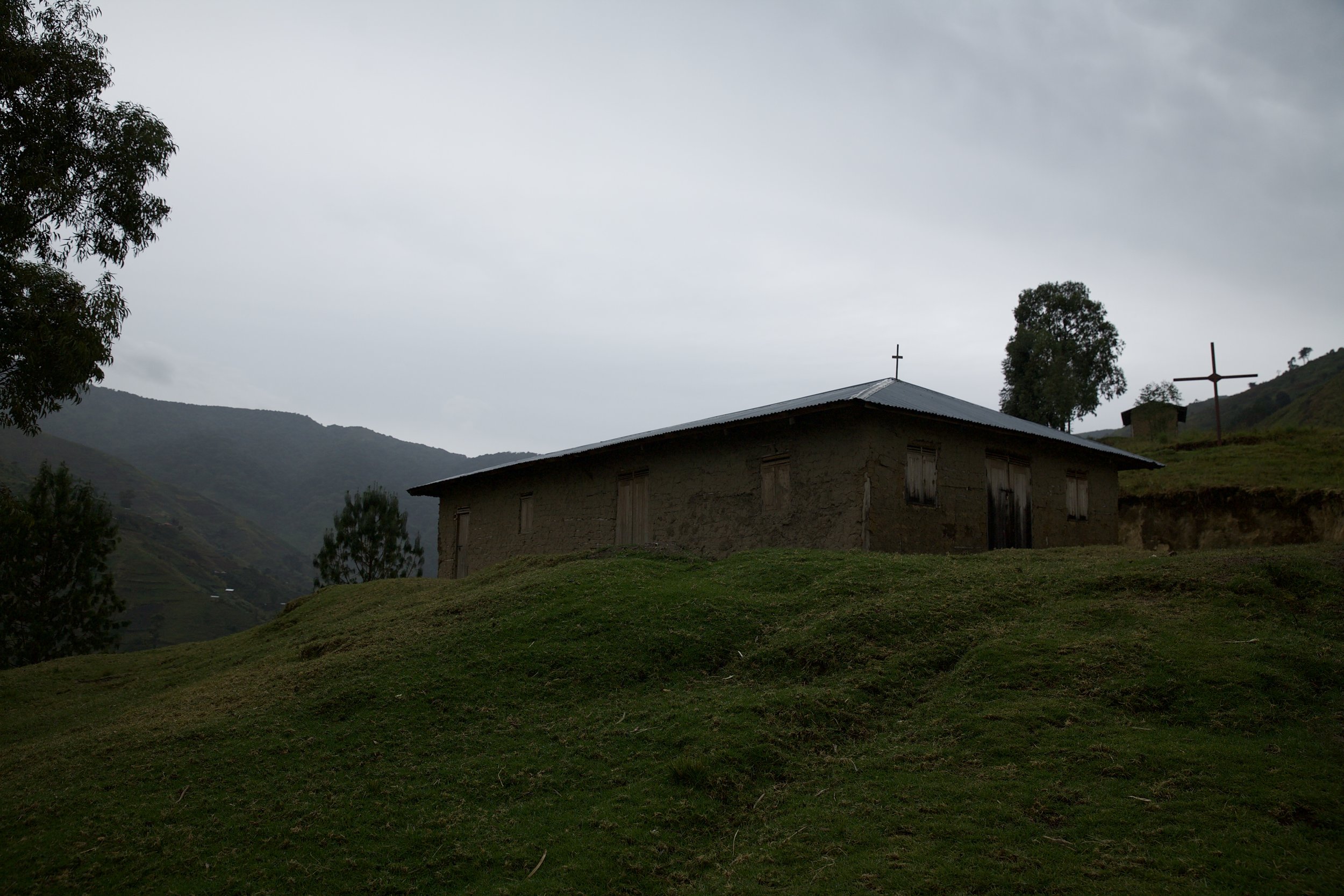I imagine that Lugandan words for mud rival Inuit terms for snow in their plenitude and nuance, the world-building significance of their ubiquity. It's April of 2016. I’ve been in Uganda for under two weeks, and already my linguistic repertoire for the country’s earthen carpet is vast. Uganda is a young country; its youth seeps from geographic pores, a primordial ooze of political turmoil and communal warmth and yes, inescapably—mud. I’m ankle-deep in the sucking stuff, barely 100 meters up a steep slope in the foothills of the Rwenzori mountains outside Fort Portal. My guide for the day is a young woman named Rose whose lanky arms are crossed, no doubt, to ward off my inconceivably Western clumsiness in the face of East Africa’s monsoon sludge.
A cluster of brightly-clad Ugandan women passes us on the way up the mountain, their feet sheathed in flip-flops, skirts lifted deftly above their calves. The muck has no power over them. They take stock of my earth-caked hiking pants and laugh before disappearing, spritelike, around a bend. Rose’s embarrassment is palpable. My cheeks are burning, camouflaged by a layer of dirt.
It was raining the day I arrived in Uganda, and it hasn’t stopped for more than a few hours since then. The land has liquefied. The mountains are floods made solid, or barely just. The mist hangs triumphantly. We inch our way upward through clumps of cliffside huts, patchwork cropland, errant banana trees. The leaves look prehistoric—immodestly green, the edges sharp and sturdy as blades. A cross on a hill ahead heralds a vacant churchyard off to our left. There is faint laughter but no corporeal source for it, an echo dreamt into being by the looming hills.
A sudden rightward bend in the mountain yanks the trail as close to vertical as human feet—or at least mine—can tread, and I slip in the mush for what must be the billionth time. Rose gestures inland, her hand spattered with loamy spray. We climb a gentler path through verdant overhang, weeds thrashing like seagrass at our legs. The air is lush with moisture; my lungs feel like incipient gills, splitting apart to push past their bony prison in search of liquid sustenance.
A hut sprouts out of the mountainside. The mud walls are moated by neat garden rows lumping up like slugs with sprouted backs, their tufty green mohawks standing straight and proud in the fog. A patterned curtain covers the hut’s entrance. This is the fortune teller’s home, Rose tells me. As we approach I notice a young woman standing uphill from the hut, eyeing me curiously, her long skirt clutched at her thigh.
I duck into the musty unlit interior, Rose at my back, and come face-to-face with a wizened man squatting on a small hide-covered stool in the center of the room. His eyes are misted over and bloodshot, the corneas spotted like the leopard skin slung around his hunched frame. He holds a rattle made from what appears to be a gourd in one hand; in the other he shuffles a bunch of small sticks that look vaguely like hand-rolled cigarettes whose freshest days were several dozen monsoon seasons ago. There’s a low-sitting basin of water next to him playing host to a swarm of gnats.
Two other women squat silently in the corner, waiting. Looking at them, I feel a sudden, breathtaking rush of shame. I am an interloper, an outlander come to play games in the place where they open up their chests and lay bare their beating hearts to the fog and the winged insects and the tiny floating grains of soil. I want to ask them which questions they’d find worthy of answers, but Rose is tugging at the elbow of my shirt, hissing softly. “You must ask some fortune now.” My mouth is dry and empty. I look at her until she says, louder, smiling at the room in performative embarrassment: “People can ask...about their husbands and their children. Also life in the home.”
She glances at the fortune teller and asks me with a sweep of her hand, “Do you want to know if you will marry?”
I have no interest whatsoever in the answer to this question. So of course I nod stupidly and crouch down next to the two women on the mud floor. A mosquito the size of my thumb settles on Rose’s backpack as she’s translating my non-question, and the fortune teller shuffles into action. The motion starts in his hands and travels up his body as if some unknown animus has come up from the earth and strengthened in its race toward his head. He drops the small pack of sticks into the basin of water; they snap into place as if the liquid were magnetically charged. Two sticks have landed upright, which seems like it should be impossible. The fortune teller is chanting under his breath, his left hand moving in small circles near his lips. He repeats this sequence several times—shuffle, throw, shuffle, throw. The movements are fluid and sure: he’s a seasoned card dealer in an otherworldly casino.
When the divining is done, he mutters something to Rose, who stands docilely in a corner. He never looks at her, or at me. There are no theatrics in this ritual. Rose gravely explains that I am not destined to marry. She is apologetic as she breaks the news, like a doctor trying to soften the blow of a fatal diagnosis. I smile, just for a moment, and Rose recoils like I’ve slapped her. The women squatting next to me are supremely unmoved.
“You will ask now about children,” Rose says. It’s not a question, and I have even less interest in this next prediction than I had in the first. Nevertheless, I nod stupidly once more, and the whole dance starts over. When it ends, Rose informs me I’ll have two children in spite of my marriage-less future. The fortune teller’s hut is decidedly animistic, but Uganda is a deeply Catholic country, and it seems wise this time to avoid any outward sign of amusement.
Rose signals that it’s time to leave, but I pretend not to see her motioning toward the curtain that separates us from the rest of the world. One of the other women has begun to talk, and though the fortune teller gives her no more overt attention than he directed at me, there’s something in the way he moves now that hints at a deeper commitment, an enhanced gravity. The ritual is more complex, faster and more conversational: both women interrupt the shuffle-and-snap of the sticks before the old man has stopped moving, and he grunts softly in reply. I don’t need to know the language to hear the urgency in their voices. There’s a connection between them that reverberates in the dark room, and even I understand that what I’m seeing is communion among true believers.
Rose lays a hand on my sleeve, gentle and unyielding. I want to stay, but she’s right. I’m trespassing on something sacred, something to which my curiosity does not entitle me. We duck out of the hut into the muzzy mountain air and begin the onerous process of slipping our way down the muddy trail. Rose knows what’s coming. “You want to know the questions?” I do, keenly, much more than I have cared to know answers today.
“They ask about war, if it will come. They want to know if they must leave, or if the husband or son will die. They ask about the rain, will it come again. Maybe the crops will die, they don’t know. They ask about children. Children also die sometimes.”
We pass a little garden of cassava plants stamped onto the hillside. Who tends this tiny unsettled patch of land is unclear; perhaps it’s shared. Inexplicably, I think of the young woman standing outside the fortune teller’s hut, skirt in hand. I have one last question for Rose, and after I ask it she’s quiet for a long time. Finally, she swats a mosquito on her leg and shakes her head. “I don’t know if I believe the fortunes will happen, but it’s…” She trails off for a moment, then shrugs. “It’s not important if I believe. The important thing is something different.” I don’t know the Lugandan word for faith, and she doesn’t know the English, so we keep walking.
“You are sad about your fortune? Because it’s not necessary to believe.”
It’s my turn to shake my head. We’ve reached a barrier that goes beyond language. I tell her the truest thing I can muster: My fortune is good. The fortune teller’s answers are not so important. The important thing is something different.
